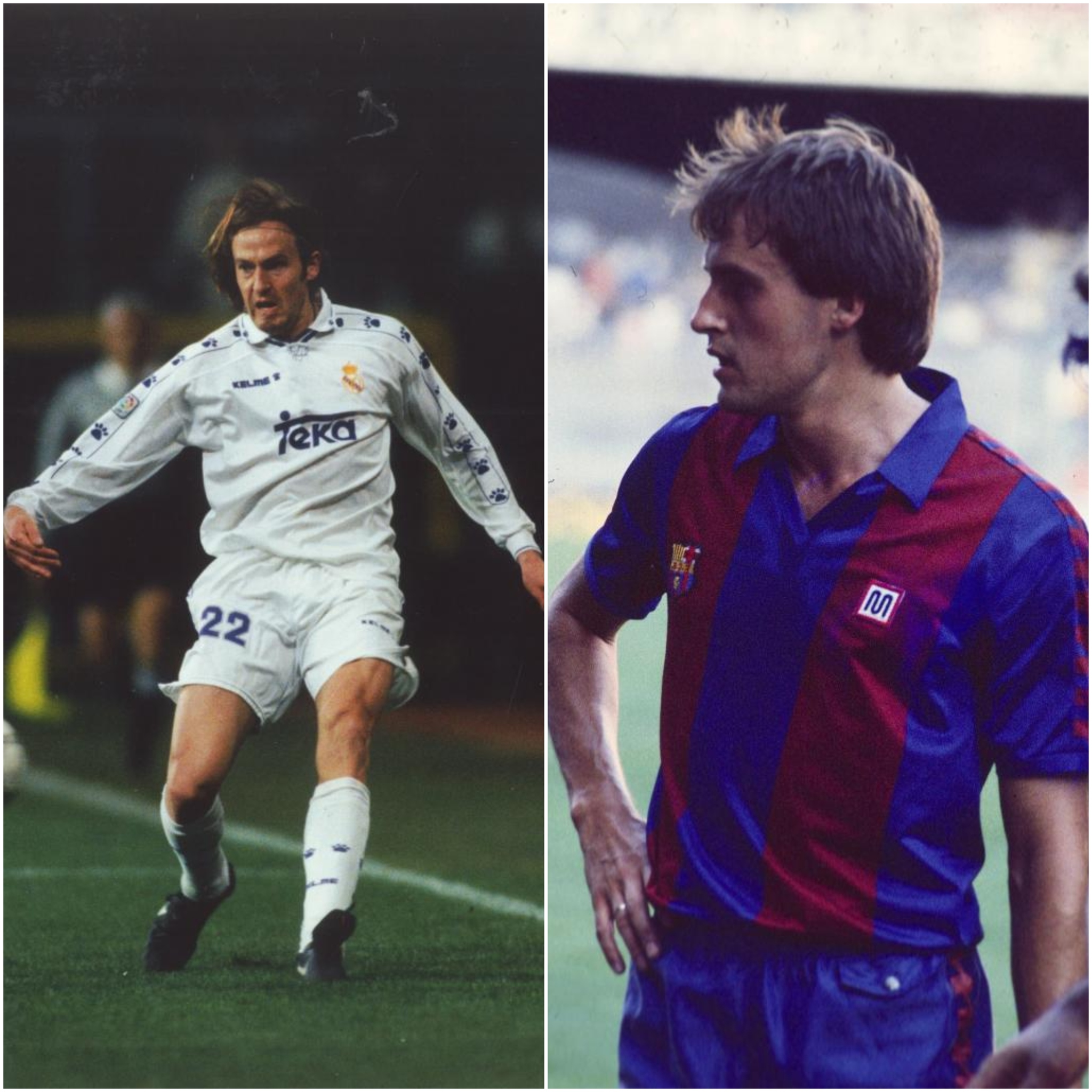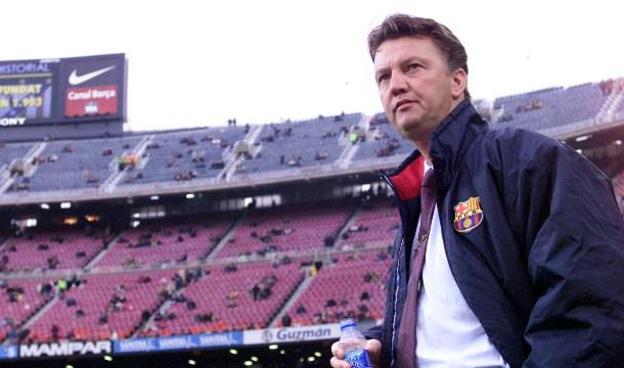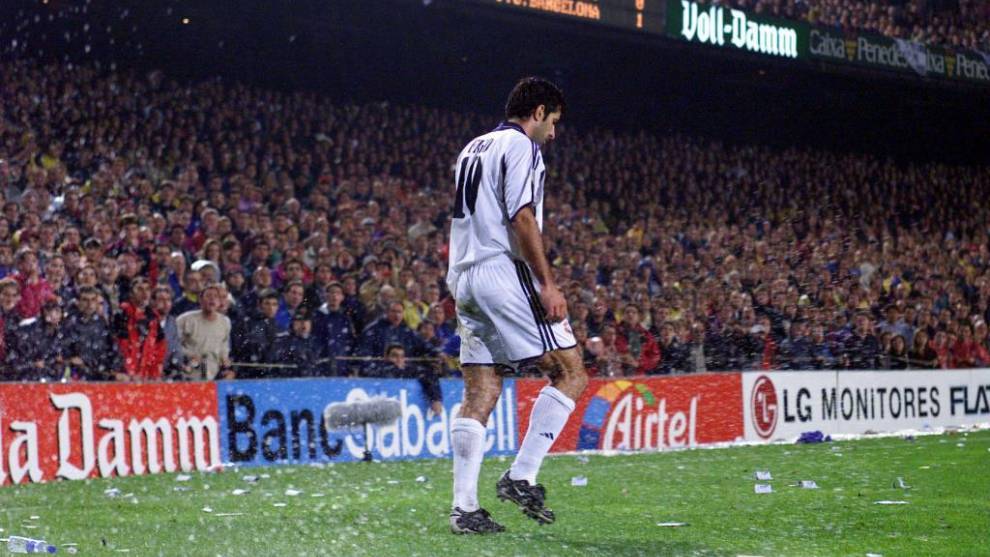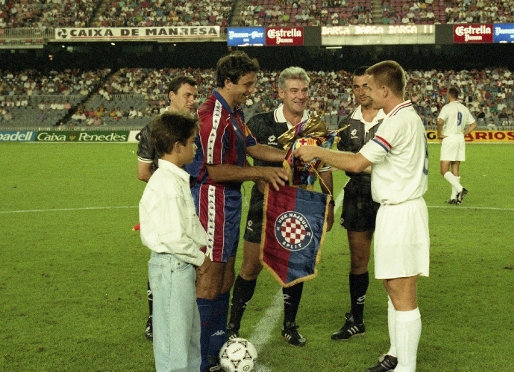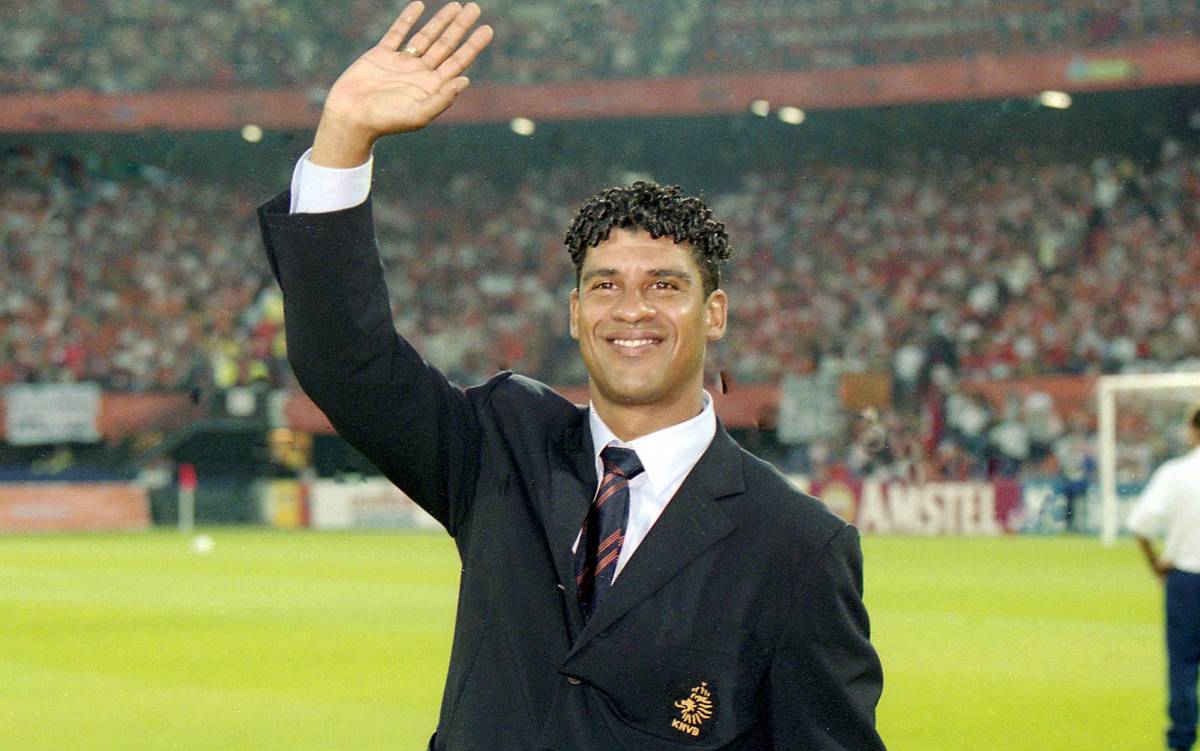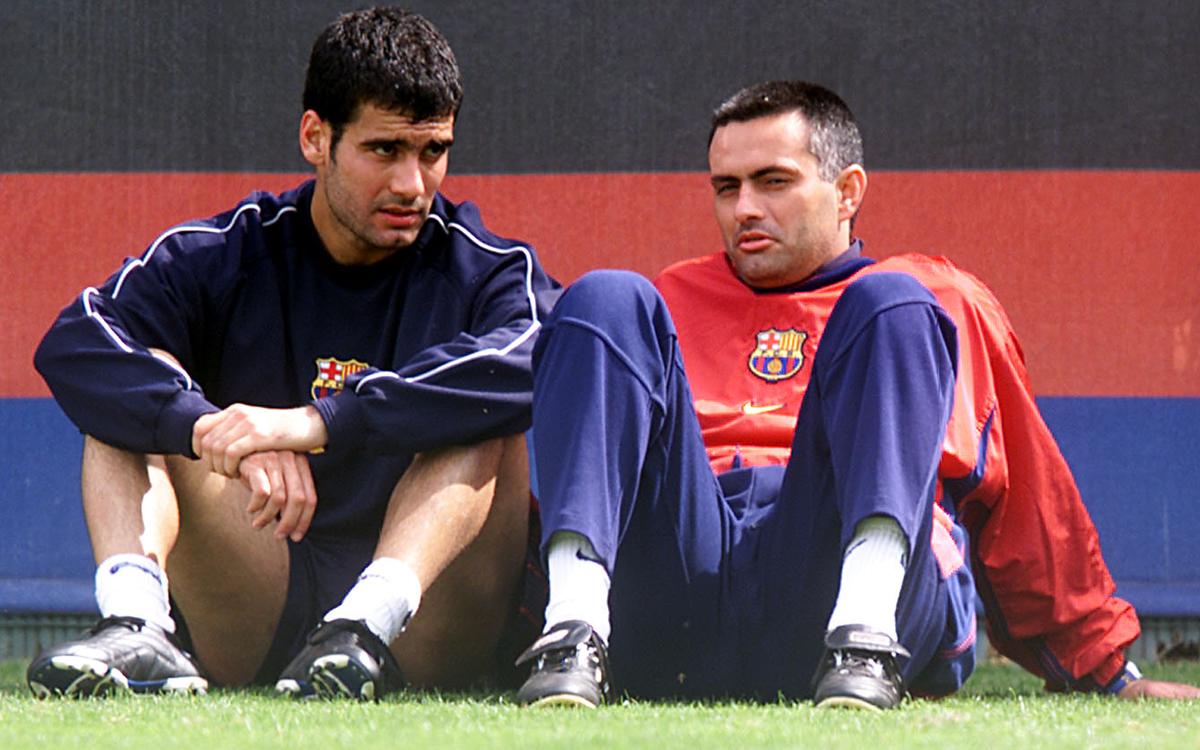Barcelona - La Miséria (1996-2008)
An Arupinum and Kinnik collaboration
When you think of Barcelona, it is most likely you will think of several things. La Masia; The 70s golden age; the standing up against Dictator Franco, or even the glory days of Messi. Well, it wasn't like that all that time. In fact, 20 years ago, Barcelona wasn't just behind Real Madrid, who were busy winning The European Cups, but they were also behind Deportivo la Coruna, Valência and in 2007, even Villarreal! A broken squad, several managers and drama behind the scenes all led to the end of the dream team, and a start of the now so-called “La Miséria”
This is the story about that period, and how Barcelona managed to rise back to its great stature as a result, even stronger than before.
End of the dream team (1994-1996)
The story begins during a night in the Athens Olympic stadium in 1994. Barcelona had just won the European Champions League against Inter Milan, with a decisive header by Romario leading to a score of 3-1. Johan Cruyff’s Dream team had just won its second European Cup, with a squad that was head and shoulders above the rest. However, things were not as perfect as they seemed. On the last day of the 1993-94 La Liga season, Barca had narrowly lost the championship against a rising Deportivo la Coruna side. It was a victory that stopped Barca’s incredible run of form. But at that point, it simply looked like Cruyff’s machine needed some work to get back into the groove.
However, the first signs of things not being quite as rosy as it seemed came right during summer of '94 - with the controversial transfer of Michael Laudrup to Real Madrid. While in the end, the choice of starting Romario was a good choice in the CL final, Laudrup, whom many considered the most feared player on Barcelona’s squad, not being picked in the starting 11 pretty much killed whatever goodwill that was left with Cruyff. Plus, as usual, the notorious penny-pinching of president Josep Nunez reared its ugly head again, as not only he refused to give both Laudrup and Goalkeeper Andoni Zubizaretta what they wanted, but both would leave for direct rivals, with Zubi going to Valencia and, more controversially, Laudrup would join la Quinta Del Buitre at Real Madrid.
Michael Laudrup amounted 10 goals in El Classico in a span of two years
Cruyff demanded more reinforcements to reconquer La Liga, but Nunez was confident that the team, remaining almost the same as the team that won the European Cup, still got what it took to fight Real and the underdogs Deportivo, While Atletico Madrid and Valencia got strengthened with Diego Simeone joining the Colchoneros and Los Che’s acquisition of Zubizaretta and the emergence of Predrag Mijatovic and one Gaizka Mendieta.
Alas, this overconfidence would bite Nunez in the cules, as the squad didn't have the depth that Real and Depor had, and they would find themselves out of the title race by march. Even more humiliatingly, Real would end up winning La Liga, with Laudrup being named best player in La Liga in his last season in Spain before leaving for Japan, while Depo would win the Copa del Rey.
In the Champions league, Cruyff's main target, Barca would run into IFK Goteborg in the first round, which acted as a qualifier for the Group Stage, the competitions main part. The opponent was ideal on paper, and the Blaugrana entered the match at Ullevi with overwhelming confidence. Stoichkov scored to make it 1-0 already in the 10th minute, and Barca looked to be in control of the game. Then, all of a sudden, Magnus Erlingmark shocked the Catalans with 15 minutes to go, and Jesper Blomqvist sealed the match in the final minute of the game, bringing a famous victory to Goteborg. The shock win brought plenty of anger back in Catalonia, while the rest of Spain laughed in return.
At the second leg, the Camp Nou stadium was filled with 76 thousand supporters as they flocked to cheer for the Catalans, but instead they watched a defensive masterclass from the Swedes. Barca’s attack was completely subdued by Goteborg, but it looked like Jose Bakero’s goal would be enough to propel Barcelona into the group stage. However, the celebrations lasted for only 7 minutes, as Stefan Rehn equalized and silenced the Camp Nou. IFK Goteborg had beaten Barcelona 3-2 on aggregate, and the laughs from the Spanish media got even louder when Deportivo demolished Rosenborg in their own return fixture to qualify for the Group Stage. It was one of the most embarrassing nights in Barcelona's history, and it proved to be the breaking point for many.
The day Goteborg beat the reigning champions
The relationship between Cruyff and Nunez, so successful at the start of the decade, was now one of open hostilities, with both taking shots at each other in the press. More players left Thanks to the arrival of free agency, with Ronald Koeman, Stoichkov and even Romario all leaving. Barca restocked by adding Yugoslav striker Meho Kodro from Velež Mostar. The Bosnian player was just done leading the Yugoslav minnows through an inspired UEFA Cup Campaign, and it was his time to go, following military service. Then, there was the romanian duo of Georghe Popescu and Hagi, then they tried to sign David Ginola from Paris as a free agent, but Nunez wouldn't up the club's offer when Newcastle came in for Ginola.
Hagi's magic and the presence of Popescu as the defensive midfielder got Barca back into contention on all fronts. However, a nasty public row between Cruyff and Nunez, with Cruyff announcing that he already signed a contract to Manage Arsenal in England for next season, ruined the already less than ideal atmosphere at the club. This, along with the lack of offensive output outside Hagi, in which Kodro never seemed to fit into the team, led to the club fizzling out of the La Liga title race, won by Atletico Madrid. The latter would defeat them in the Copa final for an unexpected double. In the UEFA Cup, Barca would get upset by PSV Eindhoven, with goals from Zenden, Eijkelkamp and the Brazilian phenom Ronaldo eliminating Barca. The Cruyff era ended in a massive whimper.
Bobby Robson - Miles behind (1996-1997)
Following the loss against Eindhoven, Johan Cruyff was officially out of Barcelona following the penultimate match of the Primera season. The legendary player and coach that had twice brought Barca back to its winning ways was now leaving for Arsenal, and in his place came the man that had resurrected Manchester United in the past several years - Bobby Robson.
The English tactician was just done winning the English Division One in the play-off against Newcastle United at Wembley, and his achievements were immediately noticed by Nunez. Robson was to be the man that would bring Barca back to its tracks. However, Bobby was not aware of the fact he was supposed to be a bridge between Crujiff and Ajax manager Louis van Gaal. With this, Robson was destined to fail.
During Summer, Gheorghe Hagi and Meho Kodro were all leaving, and Barcelona embarked on trying to acquire a new set of players for Robson’s tenure. The Brazilian that had knocked Barca out of the UEFA Cup the previous year, Ronaldo, was a player very much desired by Robson, and Barcelona offered millions to the Phenomenon from PSV, but he turned it down in favor of Parma.
Rivaldo was the next choice, having played for a single season in Parma. The young Brazilian was one of the stars of the future, but he chose Deportivo La Coruna instead for a far smaller fee. Still in a crisis to find a suitable attacker, Robson would provide a solution in Steve McManaman. The Liverpool winger was already being looked at by Juventus during summer, as the Bianchoneri offered up to 7 million $, but Robson’s call and the allure of Barcelona ended up luring in Macca to Catalonia, for 8 million $. Luis Figo was the next man to come over, having impressed at Sporting CP, along with Goran Vučević, who had helped Hajduk Split reach the Semi-finals of the Champions League in 1996, and there was António Pizzi who came from Tenerife.
Finally, the summer ended with the acquirement of Luis Enrique. The young product of Real Madrid was seen as a victory by the Barcelona hopeful, and his transfer rocked Spain as the 1996-97 season was looking like a continuation of the great rivalry between Barca and Real.
However, things were not ideal. Real Madrid spent the summer of 1996 bringing in Predrag Mijatović and Davor Šuker, Yugoslavia's most strongest attacking duo, and the two reigned over Primera throughout the season. Barcelona played catch up throughout the season, but the gap was only getting wider month after month, eventually even being overtaken by Depor and even Real Betis. Barcelona finished the 1996-97 campaign 4th, while in La Copa - they crashed out of the quarter-finals by losing 4-6 on aggregate against Atletico Madrid, as Milinko Pantić scored four goals for Atletico to help the Madrid club win at Camp Nou. Disaster was only averted when Barcelona won the Cup Winners Cup, with a penalty by Jordi Cruyff helping the club win 1-0 against Liverpool, McManaman’s former side.
With the Cup Winners Cup triumph, Barcelona was at least able to bring another trophy back to Catalonia, but the situation outside the pitch was nowhere near as healthy.
Bobby Robson, despite carrying a severely weakened side to another European Triumph, left in favor of Louis Van Gaal. The Dutch manager had just carried Ajax to four consecutive European Cup finals, and made Ajax into one of Europe's most feared sides. His appointment was to be the beginning of a fresh era, as a perfect successor to Crujiff. Goran Vučević, a relatively common starter in the season, was sold to Cologne, while Gheorghe Popescu left to join his compatriot Hagi at Galatasaray. However, the most controversial was McManaman’s departure to Internazionale. Macca was in the midst of a constant war of words with president Nunez during his stay at Barca, while Van Gaal called him “an artificial player that cannot score 30 goals in a season”. All of this broke the camel's back, and Macca left to join the Nerazzurri.
With Van Gaal now at the helm, his first move was appointing Ruud Hesp as the new goalkeeper and Sonny Anderson from Monaco.
Not-so-clockwork Orange (1997-2000)
Van Gaal wanted to bring a few of his Ajax teams's players to Camp Nou, namely Frank de Boer, Marc Overmars and Patrick Kluivert. While he Managed to get De Boer, Johan Cruyff snatched Overmars and Kluivert from the Blaugrana's grasp and brought them to Arsenal instead.
Despite those transfer setbacks, Barca initially did well in the early goings of the 1997-1998 La Liga, leading in December by 7 points over Rivaldo's Depor and a surprisingly good Athletic Bilbao side, while Real, focused on their Champions League campaign, Were a bit wobbly in the league, being in 7th. Ruud Hesp did a solid enough job in front of goal, albeit he was helped by the back four of Sergi, Ferrer, Abelardo And de Boer, while the midfield of Guardiola, newly-converted defensive midfielder Nadal and Ivan De la Pena dished the ball to the attacking trio composed of Luis Enrique, Luis Figo and Sonny Anderson. Unfortunately, injuries came in droves in the second half of the season, leading to Barca dropping off to 6th, behind Real in 4th, with Athletic Bilbao emerging as the winners of that season, their first league title since 1983-1984. Shortly before the El Classico of the season, a vote of no confidence was held by the Blue Elephant movement, led by a certain Joan Laporta and Jose Mourinho, but Nunez narrowly prevailed.
Joan Laporta almost became president in 1998. What could've been
The following season saw Van Gaal bring another Dutch player into the squad via Phillip Cocu. The PSV midfielder was always a fan of the Blaugrana, and it was his childhood dream to play for them. At the UEFA Cup, Barcelona ran into a roadblock already at round 2, playing against Manchester United. The eventual finalists knocked Van Gaal's side 5-2 on aggregate, with Barcelona only accumulating a measly 2-2 draw at Camp Nou.
Over at La Liga though, things were even worse. Barcelona was in the middle of a title fight with Real Madrid, Mallorca, Deportivo, Valência and Celta Vigo, and they only finished 5th, barely qualifying for the UEFA Cup after outrunning Celta Vigo. Van Gaal meanwhile was at a war with the Catalan press, as it seemed he was trying to mix as many Dutch players as possible to Barcelona, and that the Catalan club was no longer looking Catalan.
As a reply to those claims, the following season would see the debut of Xavi, while Pizzi was in the striker position. Indeed, the 1999-2000 season would turn out to be Barcelona's most successful under Van Gaal's spell. The Blaugrana battled with Deportivo la Coruna throughout the entire campaign, while the UEFA Cup saw some of Barcelona's classic victories. In particular, the 7-0 win against Benfica, and subsequent 4-0 win against Juventus brought plenty of things to celebrate. On the Semi-finals though, Barcelona met with Arsenal, led by Johan Crujiff. It was a tough battle for both, but Johan’s tactical prowess and Arsenal's firepower overpowered Barcelona, and thus the Gunners carried on to the final. Things got even worse when Rayo Vallecano won 2-0 at Camp Nou, effectively giving the title to Depor. At the following press, Louis Van Gaal resigned, saying - “Friends of the press, I am leaving. Congratulations.”
The bitter end to what was a promising season was the last straw for many, as Nunez left his position as president, while Pizzi left the squad along with Ruud Hesp. However, the most bitter pill to swallow was the departure of Luis Figo to bitter rivals Real Madrid. The vice-captain of Blaugrana left the team for the most expensive transfer in Europe, and his move firmly cemented the fact that Barcelona was once again the smaller club of Spain, overshadowed by the Galácticos.
The little Catalan club (2000-2003)
The transfer of Figo came right when Joan Gaspart became the president of Barcelona, ushering a new era after Nunez’s 22 years of rule. For the next season, Lorenzo Serra Ferrer would be the new coach, while elsewhere, Barcelona managed to acquire the man that had led Dynamo Kyiv to its European Cup triumph in 1999 - Andriy Shevchenko. The Ukrainian striker came for 25 million $, followed by Gérard Lopez and Boudewijn Zenden, along with the debut of academy graduates Mikel Arteta, Pepe Reina and Gabri. With a rejuvenated squad, Barcelona would enter the new millennium with a mix of optimism but also plenty of uncertainty.
Said uncertainty almost turned into an apocalyptic catastrophe, as the first half of the season was completely disastrous, with only Shevchenko’s crucial goals preventing them from entering 2001 in the relegation zone, along with the announcement of the departure of club captain Pep Guardiola to Brescia in Italy in 2001, and also being Eliminated by Liverpool in the semi-finals. Said apocalyptic ambience was demonstrated at Camp Nou during Luis Figo's first game in Catalonia under the Real Madrid shirt, on October 21, 2000. The whole stadium was filled with pure, unadulterated hatred for the Portuguese star. Tons of derogatory Banners were flashed in his directions, while All sort of projectiles, from fruits and bottles to cigarette Lighters and cell phones were thrown at the Portuguese. The culmination was a group of fans throwing a severed Pig's head at Figo, prompting him to demand teammate Michel Salgado to take the corner instead of him.
Luis Figo's first El Classico in white
T
Sensing the need for a change, former club legend Carles Rexach was hired as the new coach for the second half. Placing the more experienced Richard Dutruel instead of the talented but very green Pepe Reina in front of goal, as well as giving more important roles to Xavi, Puyol and Zenden, Rexach showed some much needed leadership and Some Basic tactical nous. Combined with Zenden playing out of his mind and an imperial Shevchenko, Barca Would miraculously Get back up the standings, to the point that they entered The final day of the season in 8th place a three-way fight for 6th place, the last available UEFA Cup place, against Malaga and Celta Vigo. On the final matchday against Valencia, Barca needed to win in Camp Nou to qualify, with Celta and Malaga having won their Games. Andriy Shevchenko Showed he was worth his hefty price tag, for he scored a hat trick, including an incredible bicycle Kick from à cross by Frank De Boer at the very end of the game, to win it 3-2 for Barca and send Them to the UEFA Cup despite being close to the relegation zone during the Christmas break!
Alas, the euphoria Of that late season comeback led to a harsh return to reality in the 2001-2002 season. Phillipe Christanval, the standout young Center back of Arsene Wenger's Monaco and a Barca fan, was signed for $6 million along with Swede Patrik Andersson to bolster the defense, but alas, both would end up sending most of the season On the injured list. Said injuries would bite Barca big time in the UEFA Cup first round against Slavia Praha. The first leg went really well, Ending 4-1 in the Camp Nou with a two-goal performance from Luis Garcia, Who returned from his successful loan at Tenerife the year prior. However, the injuries on defense, combined with a poor showing, led Slavia to complete à momentous comeback in Czechia, as the Slavist won 3-0 and went through 4-3 on aggregate. In the league, Barca did the same result as last year, à meager 6th place finish far away from league Winners Valencia of Rafa Benitez, while in the first round of the Copa, they would suffer even more humiliation, as they were knocked Out in the first round by minnows UE Figueres 1-0 after Extra Time.
Desperate times called for desperate measures, and the club would reappoint Louis Van Gaal as manager in 2002, while the club's financial woes meant that transfer activities Were limited, with the only notable moves being De Boer, Abelardo and De La Pena leaving and the arrival of Juan Roman Riquelme, a signing that Van Gaal didn't like at all, seen more as a way for Riquelme and his family to get out of a tense situation in Argentina with his brother being kidnapped and held for a ransom that Riquelme paid.
2002-2003 would see the worst domestic season in Barcelona’s modern history. Despite Shevchenko’s goals, the emergence of Puyol, Xavi and Luis Garcia as bonafide starters and the arrivals of academy graduates Thiago Motta, Victor Valdes, Sergio Garcia, Oleguer and Andres Iniesta Into the first team, Barca would finish a meager 10th place, ten points behind the European Places, while they would exit once again in the first round of the Copa, à 3-2 upset by Novelda CF.
However, by a miracle, Van Gaal's side simply wouldn't lose in the UEFA Cup. This team, so dysfunctional in Spain, somehow got the job done in Europe, grinding out ugly wins thanks to the clutch Goals of Puyol, Garcia and Shevchenko, defeating The likes of Pogon Lwow, Newcastle United and Olympiacos all by the finest of margins. At home, Boudewijn Zenden scored the only goal in Camp Nou against Hajduk Split led by Igor Tudor And the Bulgarian sensation Dimitar Berbatov, only for the latter to score a dagger into the heart of Barca fans in the away fixture in Split, forcing the penalty shootout. It was in this shootout that Victor Valdes emerged as the undisputed Number 1 keeper For Barcelona, Delivering à masterclass as he stopped all but one Hajduk penalty as Barca moved on 4-1 on pens, grinding out another ugly win against the young and exciting Liverpool of Gerrard, Smicer and Michael Owen to head to an improbable UEFA Cup final against their former assistant coach José Mourinho's FC Porto. In a thriller, Deco and Benni McCarthy Scored early to make it 2-0, but Andriy Shevchenko rose to The occasion, scoring à brace late in the second half to force extra time. Alas, the comeback dreams faltered By the feet of one Dimitri Alenichev, who burried the ball past Victor Valdes On a corner rebound to win Porto's first european trophy since the 1987 European Cup triumph.
The quarter-final match between Barca and Hajduk
The Slow, but steady resurrection (2003-2008)
A new president was elected in 2003, as Joan Laporta finally won the highest position in the Catalan institution. Gone was both Van Gaal and Riquelme, With a surprise choice In Frank Rijkaard joining as new manager, despite him relegating Sparta Rotterdam last year in Holland. At first attempting to make a big splash, Laporta Didn't start his new presidency on the right foot, as David Beckham rejected going to Catalonia in favor of staying in Manchester United due to his good relationship with coach Sven-Goran Eriksson, while RC Paris's superstar Ronaldinho stayed in the French capital following the sacking of Luis Fernandez and the appointment of offensive coach Jacques Santini as manager. This led to Laporta and Rijkaard relying On the youngsters of the club once more, with the notable moves being Albert Ferrer retiring as a one-club man, Phillip Cocu returning to PSV Eindhoven, Riquelme joining Villareal for 8 million plus Brazilian right back Juliano Belletti and the Free agent arrival of Mexican midfielder/Center back Rafael Marquez from Monaco and the loan signing of Dutch midfielder Giovanni Van Bronckhorst from Johan Cruyff's Arsenal, Reconverted to left back under Rijkaard, while Sergio Garcia competed with Zenden from the starting spot at left wing.
Frank Rijkaard during his Barca tenure
Barca 2003-2004 lineup
GK: Victor Valdes
RB: Juliano Belletti
CB: Carles Puyol
CB: Oleguer
LB: Giovanni Van Bronckhorst
DM: Rafael Marquez
CM: Xavi
CM: Thiago Motta
RW: Luis Garcia
ST: Andriy Shevchenko
LW: Boudewijn Zenden
Bench: Jorquera, Philippe Christanval, Sergi, Gabri, Gerard, Luis Enrique, Andres Iniesta, Sergio Garcia
With expectations being very low, Rijkaard's Barca impressed all pundits with the beautiful attacking Football that they played, with the Catalan identity being rejuvenated and Shevchenko in his prime. The Blaugrana took part in their first title race in years, à 4-horse race between them, the galaticos at Real Madrid, Rivaldo And Deportivo La Coruna and the league Winners Rafa Benitez's Valencia, whose superior Defense got reason over Barça's attacking style. Rijkaard's side finished as unexpected runner-ups in La Liga, while they lost a close Copa del Rey quarter-final tie to the eventual Winners Real Zaragoza of future player David Villa.
2004-2005 sees Barca not make it out of the Group Stage of the UEFA Cup, but they would match the results of last year, finishing runner-ups to Rafa Benitez and Valencia once again and losing in the quarter-finals of The Copa to the eventual Winners Real Betis and Joaquin. young teenaged graduates Cesc Fabregas and a certain Lionel Messi emerged in the first team, showing off glimpse of their potential and Fabregas quickly turning into the youngest first-team regular in club history, while Veterans Sylvinho and Henrik Larsson arrived to support this young and exciting team.
2005-2006 Barcelona
GK: Victor Valdes
RB: Juliano Belletti
CB: Carles Puyol
CB: Rafael Marquez
LB: Giovanni Van Bronckhorst
DM: Thiago Motta
CM: Cesc Fabregas
CM: Xavi
RW: Luis Garcia
ST: Andriy Shevchenko
LW: Sergio Garcia
Bench: Jorquera, Oleguer, Sylvinho, Gerard, Iniesta, Gabri, Messi, Larsson
In the middle of the collapse of the Galacticos, Barça thrived, entering à crazy 6-horse title race with Valencia, Villareal, Osasuna, Sevilla and Celta Vigo. In the end, à slip up against Villareal thanks to a riquelme pass to Diego Forlan gave the title to the Yellow Submarine on the last matchday, but the club would bounce back in the Copa, defeating Zaragosa and Real Madrid in incredibly high-scoring and close ties, with a legendary performance by Shevchenko in the return leg semi-final at Santiago Bernabeu forcing the Madritistas To give the Ukrainian à standing ovation. In the final, they dispatched their local derby rivals Espanyol to finally win their first silverware since 1997.
And the good times didn't stop there. Succeeding In finishing 2nd in the Group Stage of the 2005-2006 UEFA Cup, including a memorable fixture against future rival Cristiano Ronaldo at Sporting CP, Barca cruised past Claude Puel's Lille and 2005 Champions League finalists CSKA Moscow in the first two knockout rounds before winning in ugly fashion against Jupp Heynckes's Schalke, with Lionel Messi making himself famous with his first great exploit In the return leg. Coming on as a sub, the small Argentine grabbed à loose ball and simply curled à screamer in the top right corner past Frank Rost late in the game to win it for the Blaugrana, who headed to Eindhoven to meet the surprising, but clearly overmatched Rapid Bucharest, who nonetheless did the exploit of shutting down Barça's offense in the first half to end it 0-0. However, it only delayed the inevitable, as Shevchenko opened the scoring thanks to a great link-up play with Xavi, Luis Garcia and substitute Henrik Larsson before Belletti Put the game away by heading in Larsson’s blocked shot on the rebound to make it 2-0 and win Barça its first european trophy since 1997.
The young Argentine phenomenon - Lionel Messi
The subsequent Cup Winners Cup campaign would see Barca go far, knocking out Inter in the semis to play in the final. However, the finale in Geneva would prove to be less joyful, as Barcelona ran into the club that was led by Jose Mourinho once again - Liverpool. In the final, Barca played well to deflect the initial attacks by the Reds, but Steven Gerrard sealed the deal to win another trophy for Liverpool, while Barça's misery would continue.
In the 2006-2007 La Liga, Barcelona played well throughout the entire season, constantly staying at the top and battling it out with a stellar Sevilla side managed by Juande Ramos and led by young studs like Sergio Ramos, Antonio Puerta, Jesus Navas, Julio Baptista, José Antonio Reyes, Christian Poulsen, Enzo Maresca, Frédéric Kanouté, Luis Fabiano and future Blaugrana Dani Alves. However, a mid season struggle, in which Barca accumulated four losses led to the Blaugrana finishing two points behind the Andalusian champions. Nevertheless, another competitive season showed the fruits of Joan Laporta’s labor as president.
During the 2007 off-season, Thiago Motta left for Genoa and Luis Garcia left for Atletico Madrid, while van Bronckhorst returned to Holland and Feyenoord. Giovanni dos Santos, Gerard Piqué, Bojan, Eric Abidal, Yaya Touré and Gabriel Milito all made their debuts for the Blaugrana, while Frank Rijkaard remained the coach.
However, despite a win Against Sevilla, Barca had a shaky period in which it lost to Espanyol, a rebuilding Real Madrid and Villarreal, leading to the team dropping back to 4th. As the Yellow Submarine led the table and eventually won their only La Liga title, the Blaugrana had to play catch up, with the later stages of the Primera seeing Barca bounce back to 2nd after a collapse by Real. Still, Barcelona was once again unable to take that final step to winning the league, while May saw Frank Rijkaard stepping down as manager after 5 years. While his tenure could be deemed as unsuccessful due to not winning the league, he did restore Barcelona's presence in the European Cups by winning the UEFA Cup in 2006, and restored some of its stature with the Lá Copa in the same year. Some were worried how this squad would operate without the Dutchman’s input. But, the man that would come to the team would prove to be special, and in the end guide the Blaugrana to its most glorious period. That man had haunted Barcelona for 10 years, beating them in every encounter they had. From Porto to Liverpool, from the UEFA Cup to the Cup Winners Cup. The man that would come to manage Barcelona was the Special One - Jose Mourinho.
The future is Blue and Red...
Barcelonas' European campaigns from 1994 to 2008
A special thanks to Kinnikuniverse for participating in the this post and for massively helping me with the players and season placements. I am forever in your debt, mate!


